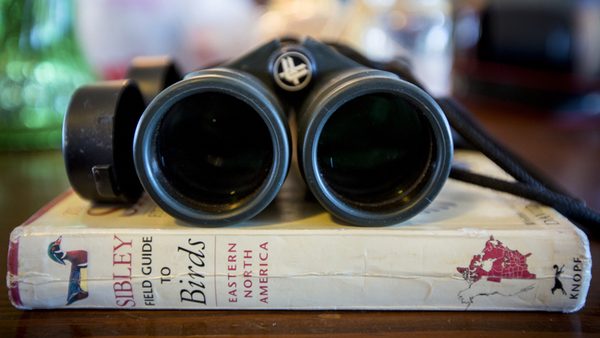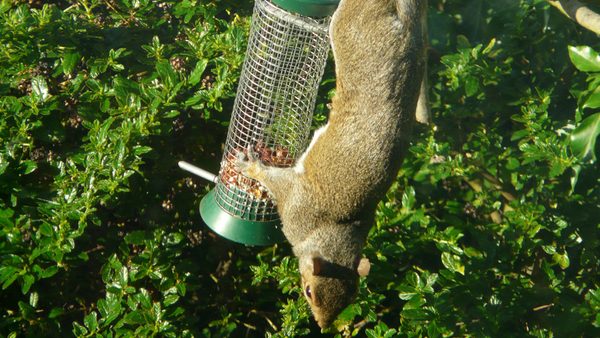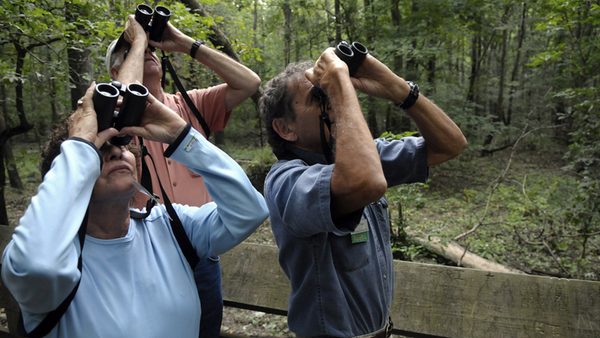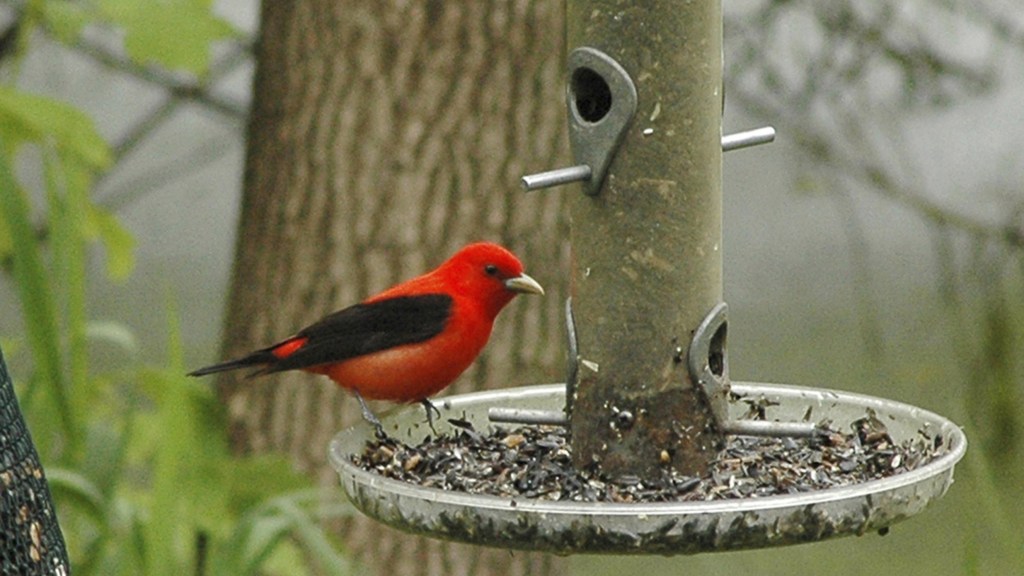Editor’s Note: This is part of an occasional series chronicling our writer’s adventures, misadventures and occasional triumphs in her ongoing quest to be a passably decent birder.
I thought the next step in my Zero to Hero Birding adventure would be a big-time field trip – lots of cool species, migrations, and fancy spotting scopes.
That will come. But I have recently discovered that birding is more fraught than I ever imagined.
So today – in the interest of public service — I feel compelled to share the lessons I’ve learned during my last few weeks as a neophyte birder. Most of them belong under the heading, “It would have been nice if someone had bothered to warn me.”
#1: This May Come as a Surprise, but Not Everyone Automatically Assumes You’re Using Those Binoculars for Birding
This will likely be true of all your neighbors. But I can confirm that it is especially true of neighbors who happen to have very nice bird feeders and birdbaths in their backyards.
You might think if when they see you on your deck, binoculars trained on the feeder in their yard, they will assume that, of course, it’s obvious you must be watching birds. You might think that. But you would be wrong.
Trust me on this – the assumption that you are an innocuous birder is NOT the first conclusion they will leap to.

To avoid any unpleasantness, inform your neighbors ahead of time if you’re going to be engaging in binocular-assisted backyard birding.
(This goes double if the birdfeeder in your neighbor’s yard turns out to be in front of the windows to their kids’ rooms.)
#2: Squirrels Are Evil, Devious Gluttons
In an effort to stop freaking out my neighbors, I got my own feeder and put it where I could see it out the window of my home office. It was a simple suet block hanging in a green wire cage.
It attracted a nice collection of backyard birds, including cardinals, white-throated sparrows, robins, grackles, and even a Carolina chickadee.
Of course, that was before the squirrels found it.

I had been warned to be careful of feeders – that they can sometimes attract rats or other vermin – but no one explained that “other vermin” is really code for “devil squirrels.”
Instead of birds, my feeder was soon host to a kind of combination squirrel buffet and wrestling match. The way they hung upside down, climbed over each other, defied gravity, and contorted their bodies to get inside the feeder, it was like watching Cirque de Soleil acrobats in a cage fight.
Lesson learned. If you’re going to have a birdfeeder, get one with advanced squirrel-excluder technology.
For me, there’s a kind of cheap schadenfreude in watching the squirrel-proof feeders thwart the little bushy-tailed marauders. Petty, I know, but also satisfying.
#3: Do Not Ever Say,”Tufted Titmouse” to Your Sons
On the off chance that the reasons for this are not self-explanatory, you can test it yourself. All you need are a couple of boys aged 10 to 16.
While they’re sitting in the kitchen, point to your backyard and utter the phrase, “Look! A tufted titmouse.”
The younger one will say, “A WHAT kind of mouse?” And the older one will snort milk out of his nose. It will then deteriorate — rapidly — from there.
#4: Two Words: “Warbler Neck”
Who knew birding had its own specific over-use injury?
Warbler neck: it’s like tennis elbow, but for birders.
From personal experience, I can attest that you get it by spending hours craning your neck to catch a glimpse of a bird that will undoubtedly be facing the other way when you finally spot it.

I was advised that buying the lightest binoculars you can afford helps with this. For myself, I’m inclined to self-prescribe regular prophylactic massages during warbler migration. (Come to think of it, since I’ve been getting warbler neck in the course of this assignment, I wonder if workers’ comp applies.)
#5: And Finally, No One will Understand About the Vultures
Titmouse incident aside, my family has been very supportive of my birding project. Except for the part about the vultures. Apparently, they find it hard to understand my growing love for a bird that eats carrion, pees on its own legs, and looks more than a little like Friar Tuck in a black feather boa.
Go figure.
Thank you to everyone who sent me birding tips or left a note in the comments last time.
I’m curious about what others wish they’d known when they first started birding? Or for the other beginners out there, what do you wish someone had told you?




I got into birds when I was 13, and I was lucky to have many people, amateur and professional ornithologists alike, to help me. I think I was young enough to simply ignore the “hazards” of birding (e.g., unheated VW bus on long early February quest, successful, for Great Gray Owl, temp. minus 10F). Then and now, the rewards outweigh the hassles. Complete immersion then taught me the hazards, and why they (other than to life and limb) didn’t matter.